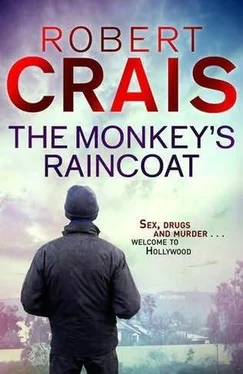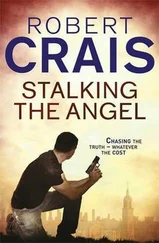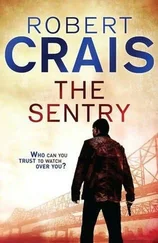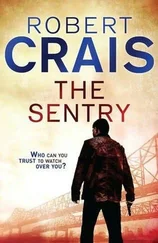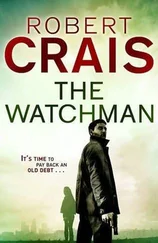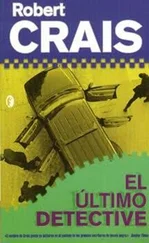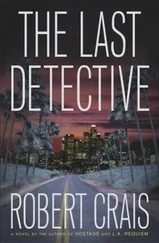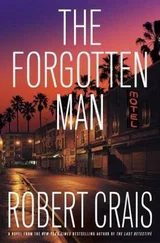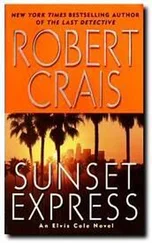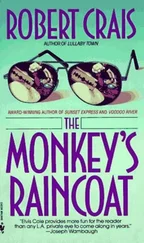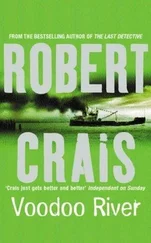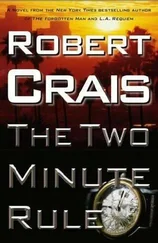Robert Crais - The Monkey
Здесь есть возможность читать онлайн «Robert Crais - The Monkey» весь текст электронной книги совершенно бесплатно (целиком полную версию без сокращений). В некоторых случаях можно слушать аудио, скачать через торрент в формате fb2 и присутствует краткое содержание. Жанр: Криминальный детектив, на английском языке. Описание произведения, (предисловие) а так же отзывы посетителей доступны на портале библиотеки ЛибКат.
- Название:The Monkey
- Автор:
- Жанр:
- Год:неизвестен
- ISBN:нет данных
- Рейтинг книги:4 / 5. Голосов: 1
-
Избранное:Добавить в избранное
- Отзывы:
-
Ваша оценка:
- 80
- 1
- 2
- 3
- 4
- 5
The Monkey: краткое содержание, описание и аннотация
Предлагаем к чтению аннотацию, описание, краткое содержание или предисловие (зависит от того, что написал сам автор книги «The Monkey»). Если вы не нашли необходимую информацию о книге — напишите в комментариях, мы постараемся отыскать её.
The Monkey — читать онлайн бесплатно полную книгу (весь текст) целиком
Ниже представлен текст книги, разбитый по страницам. Система сохранения места последней прочитанной страницы, позволяет с удобством читать онлайн бесплатно книгу «The Monkey», без необходимости каждый раз заново искать на чём Вы остановились. Поставьте закладку, и сможете в любой момент перейти на страницу, на которой закончили чтение.
Интервал:
Закладка:
“It’s just as well,” the Eskimo said. “Manolo doesn’t like you.”
“Tell Manolo to get his goddamned foot off my desk.”
The Eskimo studied me for a while longer, then made a sighing sound and took a step back, taking himself out of it. He rested his gun arm on top of the file cabinet. He said something in Spanish. The Mexicans eyes narrowed and he smiled. One of his front teeth had a design etched into it. He said something back.
The Eskimo said, “He wants you to take it off for him.”
“Tell him it’ll hurt.”
He did. The Mexican gave one barking laugh, then put his right hand under his windbreaker. I stepped in, swept his support leg out from under him, kicked him in the groin when he hit the floor, and followed it down hard, driving my knee in his chest. Something gave with a loud snap. I hit him twice on the jaw with my right hand. His eyes rolled back, shiny and black as marbles, he stopped trying to cover up, and that was it.
The Eskimo hadn’t moved.
“He’ll need a doctor,” I said. “Maybe for the groin shot, but more likely for the chest. A couple of ribs went. Could be some liver damage.”
Manolo rolled onto his side and coughed. The Eskimo looked at him with bottomless eyes. Maybe your eyes get that way from looking down through thin ice to see killer whales looking back at you. I read somewhere that in the Deep Ice Tribes young kids still have to kill polar bears to pass into manhood. By themselves. With sticks.
The Eskimo turned the eyes to me, nodded at whatever he saw, and made the. 380 disappear. “Let’s go.”
“I didn’t want you guys to think I was too easy.”
“No problem.”
He picked up Manolo like I’d lift an overnight bag. Manolo moaned. I said, “Those ribs are probably grating together.”
“No problem.”
We went out my office, along the hall, down the elevator, across the lobby, and out the side of the building.
18
A black Cadillac limo waited in the service alley. The Eskimo put me against the car, patted me down, then said, “Okay.” He shoved Manolo into the front, then he and I got into the back. There was an Asian guy at the wheel. I said, “Hey, just like the Green Hornet.”
The Asian guy glanced at me in the mirror. The Eskimo said, “Shut up,” then settled back and closed his eyes. I nodded and did what I was told.
We went east on Santa Monica, then north on Highland to pick up the Hollywood Freeway north, passing Universal Studios with its ominous black tower and skyscraper hotels and array of sound stages so numerous it looked like a breeding ground for airplane hangars. In the San Fernando valley we looped onto the Ventura Freeway and rolled west for a long time. The big Cadillac was whisper quiet. The Eskimo was to my left, slouched down on his spine, eyes still closed. Maybe sleeping, maybe faking it and waiting for me to make my move. A lot like seal hunting, I guessed. The driver never looked back, never moved, just drove. Manolo shifted every once in a while, a lump in the front seat ahead of me. Quiet. I whistled the opening bars to The Bridge on the River Kwai.
The Eskimo said, “Shut up.”
Yassuh.
We passed Woodland Hills and Reseda and Thousand Oaks. Pretty soon we left the west valley and were moving toward Camarillo. Manolo coughed twice, groaned, then sat up. He rubbed at his face, then shrugged his shoulders and rolled his head from side to side. He twisted around and looked at me. There wasn’t any threat in his look; it was more like he’d discovered a new species of rhododendron.
The sprawl and clutter of the valley gave way to hilly pasture land, green from the winter rains. There was the occasional scrub oak and the occasional dirt road and Jersey and Hereford cattle spotted on the steeper slopes. In summer, the same hills would be brown and dead and would look like desert. A few minutes past Camarillo we left the freeway. There was nothing around but a Union 76 station and an old two-lane state road running to the northwest and what was maybe a grain elevator from the forties. I said, “If you guys are lost we should ask.”
The Eskimo said nothing. Maybe I was wearing him down.
We went northwest. Ten minutes later we turned through an arched metal gate that said Cachon Ranches and followed a well-maintained composition road about a mile up into the hills until we came to what I guessed was the ranch. A maze of steel pipe corrals, one wooden main office, and three corrugated metal buildings. A heavy-duty livestock truck was backing up to the corrals as sweaty men in worn jeans and work shirts and broken fiber cowboy hats waited to receive it. Another limo was parked by the wooden office and there were three or four dusty pickups by the largest metal building. We pulled up beside the pickups and got out. The Eskimo said, “Come on.” Manolo fell out of the front seat. No one rushed to help him.
Domingo Garcia Duran stood at one of the smaller corrals, his back to us. He was standing next to a fat man. Duran was about five-ten, slim and strong-looking with narrow hips and wide shoulders and black hair shot through with silver. He was wearing tan Gucci loafers and dark slacks and a cream-colored pullover shirt that showed his build. He stood erect, much like Ricardo Montalban. He looked wealthy, also like Ricardo Montalban. Maybe if I said, “Boss! Boss! De plane! De plane!” he’d think I was funny. He and the fat man were watching a black cow walk in slow circles about the corral. Every once in a while the fat man said something and pointed at the cow and Duran would nod. Duran was holding a slender sword in his left hand. About three feet long, with a bent tip. Ixnay on the Villechaise.
The Eskimo said something to them and the fat guy went away. The black cow was short and squat and nervous. She saw us, lowered her head, then twitched and jumped away to resume her walk. No resemblance to Elsie. Duran looked at me and said, “We will talk. I will ask you questions, you will answer. I will give you instructions, you will act on them. First, do you know who I am?”
“Karl Malden.”
Something hit me hard in the left shoulder blade. I grunted and bent over but didn’t fall. The Eskimo stared at me.
Duran said, “He will hit you as many times as I wish. There are others who will hit you, also. After they are done, still others will put your body there,” he pointed the sword into the hills “so that it will never be found. Do you understand these things?”
“Do I get penalized for questions?”
The hard thing hit me again and this time I went over, my left arm dead from my shoulder blade out. He should have hit me in the head. In the head, he would’ve broken his hand and knocked some sense into me. Somebody lifted me and held me up before Duran. Life as a puppetoon. I said, “Do you have Ellen Lang or Perry Lang or know of their whereabouts?”
I tensed for the next shot but it didn’t come. Duran looked at me like he was looking at a retard. He said, “A man named Morton Lang came to my home. I did not know this man, yet I welcomed him and allowed him in as a guest. He repays my hospitality by stealing from my home two kilograms of cocaine. Very special cocaine. Not easy to get. Medical quality, you see, the cocaine they study in laboratories and hospitals. Now I’m told you have it.”
I looked at Duran. I looked at the Eskimo. I looked back at Duran. He looked at the cow. “She’s beautiful, no?”
“Somebody told you I had your cocaine?”
“Come. I show you something.”
The Eskimo shoved me after Duran toward the bigger corral. The truck had backed to the loading ramp and killed its engine. The ranch hands were swarming around the rear gate, pulling chains and metal latchbars. Duran said, “Do you know toreo?”
Читать дальшеИнтервал:
Закладка:
Похожие книги на «The Monkey»
Представляем Вашему вниманию похожие книги на «The Monkey» списком для выбора. Мы отобрали схожую по названию и смыслу литературу в надежде предоставить читателям больше вариантов отыскать новые, интересные, ещё непрочитанные произведения.
Обсуждение, отзывы о книге «The Monkey» и просто собственные мнения читателей. Оставьте ваши комментарии, напишите, что Вы думаете о произведении, его смысле или главных героях. Укажите что конкретно понравилось, а что нет, и почему Вы так считаете.
